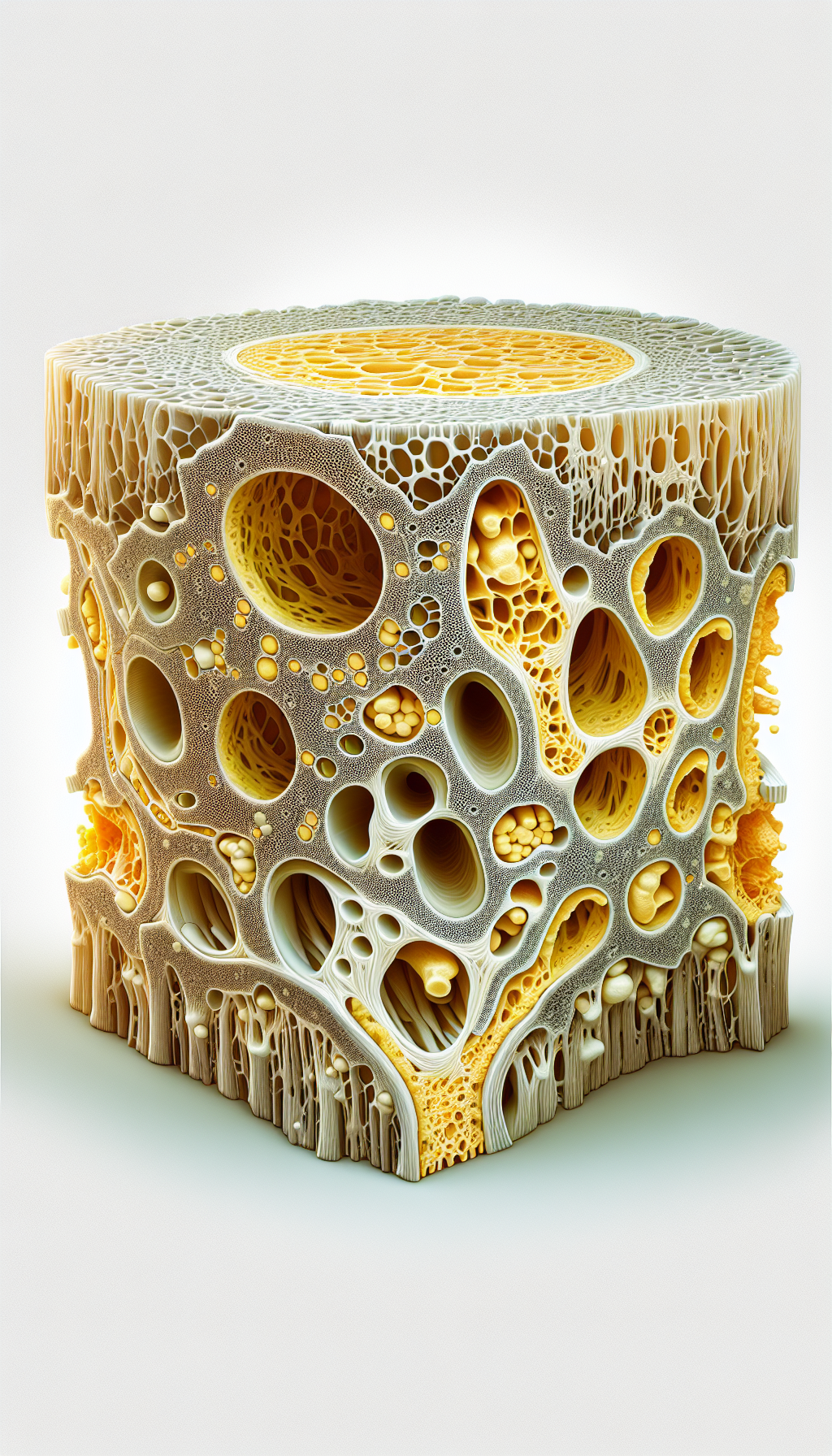Collagen is a term that is often associated with healthy skin and anti-aging products, but this protein plays a much more critical role in our overall health than many may realize. In particular, collagen’s relationship with bone density is an essential aspect of maintaining strong and healthy bones throughout our lives. This comprehensive look into the connection between collagen and bone density will explore the science behind it, its implications for health, and how individuals can support their bone health through lifestyle choices.
The Building Blocks of Bones: Collagen’s Role
Bones are living tissue that continually rebuild and repair themselves. This process requires a stable matrix to which minerals can attach, and collagen provides just that. Collagen makes up about 90% of organic bone mass and forms a scaffold that gives bones both structure and flexibility. Without sufficient collagen, bones can become brittle and more prone to fractures.
Collagen Structure and Bone Strength
Collagen fibers are composed of amino acids that twine together in a triple helix. This unique structure is incredibly strong and able to withstand stretching and compressive forces, which is crucial for bone integrity. When the collagen matrix is healthy, it properly supports the deposition of minerals, such as calcium and phosphorus, leading to increased bone density and strength.
The Impact of Collagen Degradation
Over time, collagen degrades due to various factors such as aging, nutritional deficiencies, and oxidative stress. The breakdown of the collagen matrix can lead to a decrease in bone density, a condition commonly known as osteoporosis. Osteoporosis increases the risk of fractures and can severely impact an individual’s quality of life.
Linking Collagen Production to Lifestyle
Collagen synthesis in the body can be influenced by diet, exercise, and overall health. For instance, nutrients such as vitamin C and amino acids proline and lysine are essential for collagen production. The importance of muscle strength for bone integrity is also significant, as physical activity stimulates collagen synthesis and helps in bone mineralization.
Dietary Strategies for Collagen Support
A diet rich in collagen-boosting nutrients can help maintain bone density. Incorporating foods like bone broth, which contains natural collagen, and vitamin C-rich fruits and vegetables can support collagen production. Additionally, dietary strategies to improve bone mineral density are crucial for overall bone health.
Exercise and Bone Density
Regular weight-bearing and resistance exercises are beneficial for stimulating collagen production and improving bone density. The effects of strength training on bone density have been well-documented, showing that consistent physical activity can lead to stronger, healthier bones.
Collagen Supplements and Bone Health
The use of collagen supplements has become a popular means to support bone health. These supplements typically contain hydrolyzed collagen, which is easily absorbed by the body. Studies have shown that collagen supplementation can lead to improvements in bone density, especially when combined with calcium and vitamin D intake.
Choosing the Right Collagen Supplement
When selecting a collagen supplement, it’s important to look for products that have been tested for efficacy and safety. The medication and supplements section on Avix Health provides more information on making informed choices about supplements.
The Research on Collagen and Bone Density
A growing body of research supports the link between collagen and bone density. One study published in the journal ‘Nutrients’ found that collagen peptides can positively affect bone metabolism, leading to increased bone formation and reduced bone degradation.
External Resources on Collagen and Bone Health
For those interested in delving deeper into the scientific literature, the following resources offer valuable insights:
- A systematic review on the role of collagen in bone strength found on the ‘Journal of Bone and Mineral Research’.
- A detailed study on the impact of bioactive collagen peptides on bone health available on the ‘International Journal of Medical Sciences’.
- Research on the mechanisms of collagen degradation and bone density loss in osteoporosis published by the ‘National Institute of Arthritis and Musculoskeletal and Skin Diseases’.
Preventative Measures and Lifestyle Modifications
Understanding the relationship between collagen and bone density allows individuals to take proactive steps in preserving their bone health. This includes regular exercise, a balanced diet rich in collagen-supporting nutrients, and, when necessary, the use of high-quality collagen supplements.
Monitoring Bone Health
Regular screenings for bone density can help detect early signs of bone loss. Identifying risk factors for osteoporosis is crucial in developing a personalized approach to bone health, especially for those at higher risk due to genetic factors, lifestyle, or medical conditions.
Final Thoughts
The intricate relationship between collagen and bone density highlights the importance of a holistic approach to bone health. By understanding how collagen functions within the bone matrix and taking steps to support its production, individuals can maintain stronger bones and reduce the risk of osteoporosis.
In conclusion, collagen is not just a beauty buzzword—it’s a fundamental component of our skeletal system that deserves attention. Through informed lifestyle choices and proactive health measures, we can all work towards better bone health and longevity.



